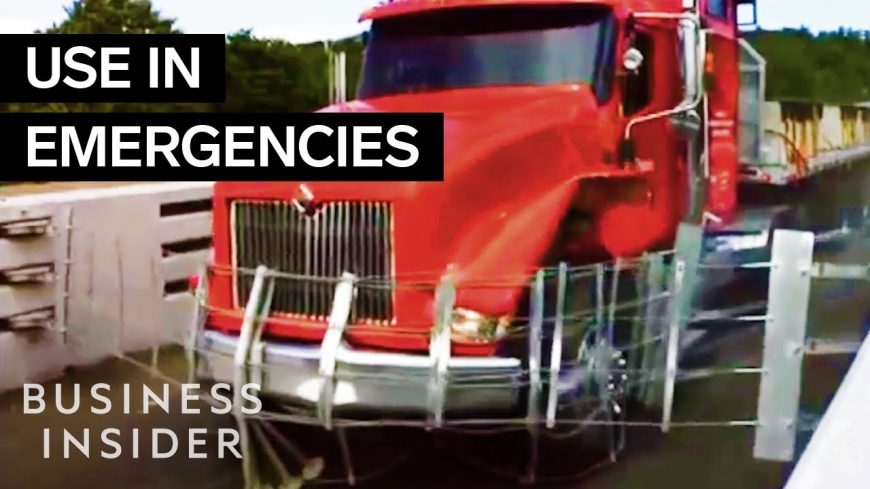How Ramps Are Being Implemented on Highway to Stop Out of Control Big Rigs

For those who have ever traveled down the highway and heard the loud chugging of an 18 wheeler, there’s a good chance that it the sound was produced while the truck was aiming to slow down. Exhaust braking just one of the mechanisms that big trucks put in play in order to try and slow down without using their actual brakes. Engine compression can help slow the vehicle by using its own momentum. This will allow the rig to continue without heating up too many components underneath the truck. Why in the world would any driver want to do this, though?
As it turns out, constant use of the braking system can end up getting a little bit hazardous. This is especially true for truckers who face rather steep downward inclines. For those who have traveled a good deal or live in hill infested areas, this certainly isn’t new news. However, for folks who live in relatively flat land, there’s a good chance that they have absolutely no idea that there are special roads for big rigs. These “off-ramps” of sorts are in place just for when these rigs speed out of control. If their brakes get too hot and end up failing, the ramps act as a last-ditch effort to slow down!
How does it work? Essentially, a sort of massive sand trap that could be built out of something like gravel might be seen sloping upward next to a section of highway. The idea here is to provide a safe haven for these big rig drivers should they find that their brakes have failed them. When they’re quickly hurling tens of thousands of pounds out of control, the traps provide a welcome alternative.
Do these runaway ramps work effectively? Well, by following along with the video below, we see one of the ramps in action. This one shows us how it slows down a semi-truck with no brakes. We also get the chance to learn a little bit more about where the idea came from!

